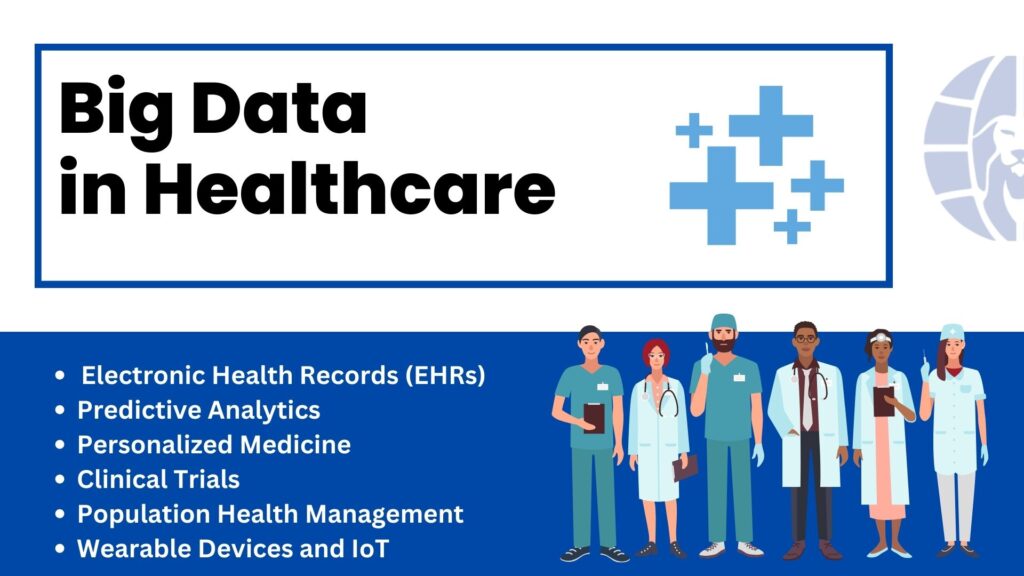There are Applications of Big Data that has helped the industry as well as Scientists. Some of the key benefits of big data include improved decision making, enhanced efficiency and productivity, and the ability to uncover new insights and trends. Big Data is playing an increasingly important role in healthcare, as it allows doctors, researchers, and healthcare organizations to analyze large amounts of patient data and improve disease diagnosis and treatment. Big Data in healthcare is a major outbreak that leads to precise and better results.

Role of Big Data in Healthcare
Big data plays an important role in healthcare by providing healthcare organizations with valuable insights and improving patient care. Some examples of how big data is used in healthcare include:
- Identifying patterns and trends in patient health data that can inform clinical decision making, such as identifying high-risk patients or predicting disease outbreaks.
- Improving population health management by identifying health disparities and developing targeted interventions.
- Reducing healthcare costs by identifying and addressing inefficiencies in the healthcare system.
- Improving patient outcomes by identifying effective treatments and developing personalized medicine.
- Enhancing research and drug discovery by analyzing large amounts of genetic data.
Saving Lives with Power of Big Data in Healthcare
Some of the most common ways in which Big Data is being used in healthcare include:
Electronic Health Records (EHRs)
Big Data is used to store and manage large amounts of patient data in EHRs. This allows doctors and researchers to access patient data quickly and easily, which can improve the efficiency and effectiveness of the healthcare system.
Predictive Analytics
Big Data is used to analyze patient data and identify patterns and trends that may indicate a risk of disease. Predictive analytics can be used to identify patients at risk of chronic conditions such as diabetes or heart disease, and to develop personalized treatment plans.
Personalized Medicine
Big Data is used to analyze patient data and identify genetic and other biomarkers that may indicate a patient’s risk of disease or response to treatment. This can help doctors to develop personalized treatment plans that are tailored to the specific needs of each patient.
Big Data in Healthcare Helps to keep Client Trails
Big Data is used to analyze data from clinical trials, which can help researchers to identify new treatments and therapies for diseases. By analyzing large amounts of data from clinical trials, researchers can identify patterns and trends that may not be immediately obvious.
Population Health Management
Big Data is used to analyze data from large groups of patients in order to identify patterns and trends that may indicate a risk of disease. This information can be used to develop public health programs and policies that are targeted to specific populations.
Medical Imaging : Big Data is used to store, process and analyze large amounts of medical imaging data, such as x-rays and CT scans. This allows doctors and radiologists to identify patterns and anomalies in images that may indicate a disease or injury.
Wearable Devices and IoT: Big Data is used to collect and analyze data from wearable devices and IoT devices such as smartwatches, fitness trackers, and home monitoring systems. This data can be used to monitor patients’ vital signs and physical activity, and to identify patterns and trends that may indicate a risk of disease.
Conclusion
The use of Big Data in healthcare has the potential to improve the efficiency and effectiveness of the healthcare system by allowing doctors and researchers to make more informed decisions based on real-time data analysis. However, it is important to ensure that patient data is protected and used ethically to avoid any privacy breaches.
